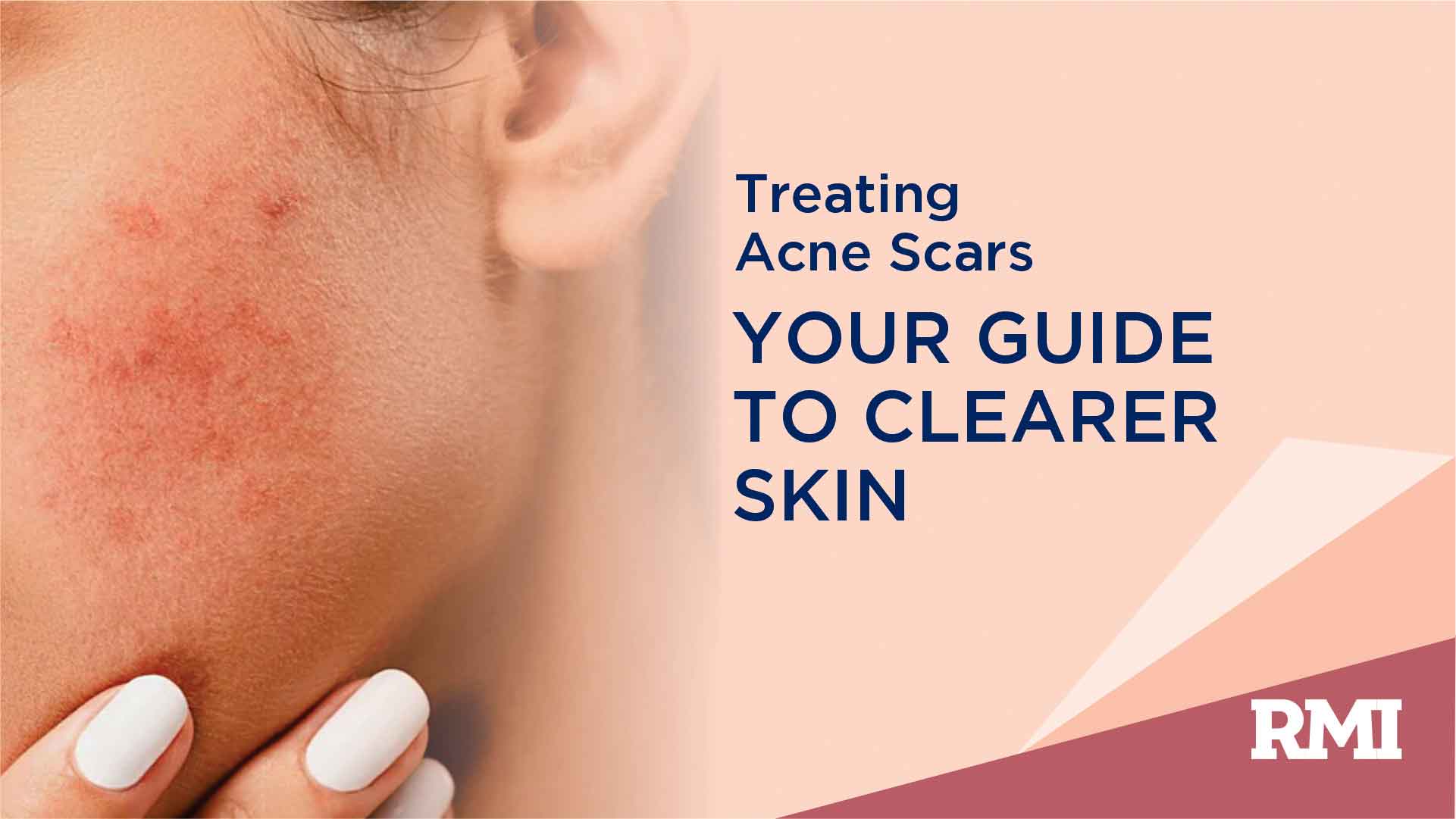Acne scars can be a persistent source of frustration and insecurity for many individuals who have dealt with acne breakouts in the past. While managing acne itself can be challenging, the lasting marks it leaves behind can have a significant impact.
The encouraging news is that there exists a wide array of effective treatments designed to reduce and, in some cases, eliminate these bothersome acne scars. Let’s explore the different types of acne scars, their root causes, and the diverse treatment options available to help you attain smoother and clearer skin.
Understanding Acne Scars
For clearer skin, it is crucial to comprehend the various types of acne scars. Acne scars generally fall into two primary categories:
Atrophic Scars: These scars appear as depressions or pits in the skin, resulting from tissue loss during the healing process. Atrophic scars encompass three common subtypes:
- Ice Pick Scars: These are narrow, deep scars that resemble small, deep holes in the skin.
- Boxcar Scars: Broad, depressed scars with well-defined edges, resembling box-like craters.
- Rolling Scars: Wavy or undulating scars that give the skin a wave-like appearance.
Hypertrophic and Keloid Scars: In contrast to atrophic scars, these scars are raised and thickened. They develop when the body produces an excess of collagen during the healing process, often appearing as raised lumps or ridges that can be itchy or uncomfortable.
Causes of Acne Scars
Understanding the underlying causes of acne scars is crucial in addressing this skin concern effectively. Here are some common triggers:
Picking or Squeezing Acne: The habit of popping or picking at pimples can introduce bacteria deeper into the skin, exacerbating inflammation and increasing the likelihood of scarring.
Severe Acne: The severity of acne is directly correlated with the risk of scarring. Cystic acne poses a higher risk of leaving behind scars.
Delaying Treatment: Failing to initiate prompt treatment for acne can allow the condition to worsen, heightening the chances of scarring.
Treatment Options for Acne Scars
Thankfully, numerous effective treatments, when administered by experienced dermatologists, can help diminish the appearance of acne scars. The choice of treatment depends on factors such as the type and severity of the scars.
Here are some common options:
Topical Treatments: For mild scars, consider over the counter or prescription creams containing ingredients like retinoids, alpha hydroxy acids, or vitamin C. These can enhance skin texture and gradually reduce scar visibility.
Chemical Peels: Chemical peels involve the application of a chemical solution to the skin’s surface, removing the top layer. This process can improve skin texture and reduce the appearance of superficial scars. However, a chemical peel isn’t for everyone, and always consult your dermatologist before considering one.
Microdermabrasion: Utilizing a machine with a diamond-tipped or crystal-tipped wand, microdermabrasion exfoliates the skin’s upper layer. It is effective for shallow scars and can stimulate collagen production.
Laser Therapy: Laser treatments target and remove damaged skin cells, encouraging collagen production and diminishing scar visibility. The choice of laser depends on the type and depth of scars.
Micro-needling: This minimally invasive procedure employs a device with fine needles to create tiny punctures in the skin, stimulating collagen production and improving scar appearance.
Dermal Fillers: In the case of certain atrophic scars, dermal fillers may be injected beneath the scar to raise it to the level of surrounding skin.
Surgery: For specific types of scars, especially deep or stubborn ones, surgical techniques like punch excision or subcision may be recommended.
Silicone Gel Sheets: These sheets can flatten and soften raised scars such as hypertrophic and keloid scars.
Always consult with an experienced dermatologist who can assess your individual needs and recommend the most suitable treatment option for your unique situation. Your skin’s health and appearance are best entrusted to the expertise of a qualified professional.
Acne scars are not permanent. There are a variety of effective treatments available to help you achieve smoother, clearer skin. The best treatment for you will depend on your individual skin and the severity of your scars. Consulting with a dermatologist will help you determine the best course of action. With patience and the right treatment plan, you can significantly reduce the appearance of acne scars and boost your confidence.

